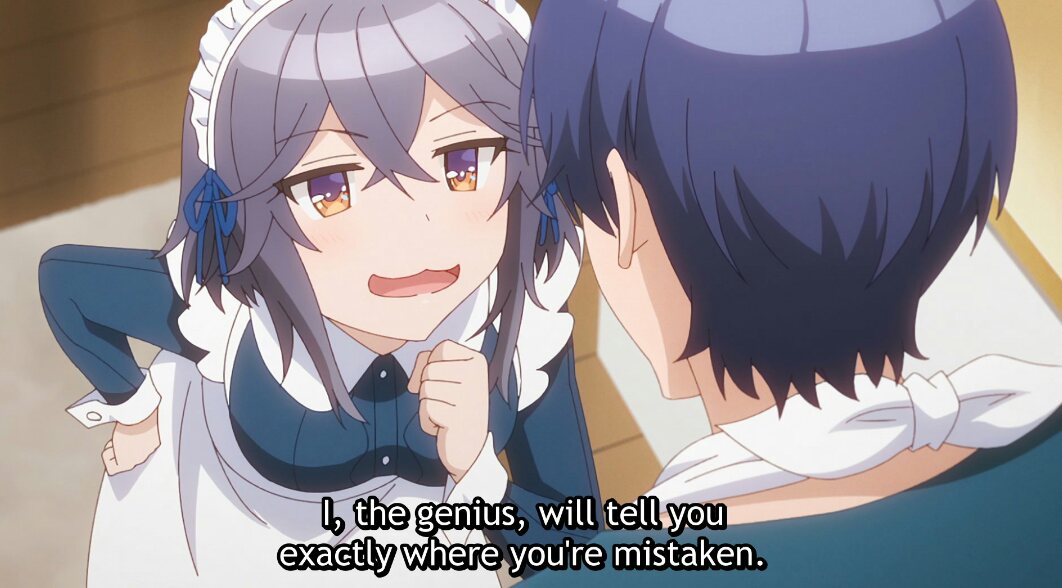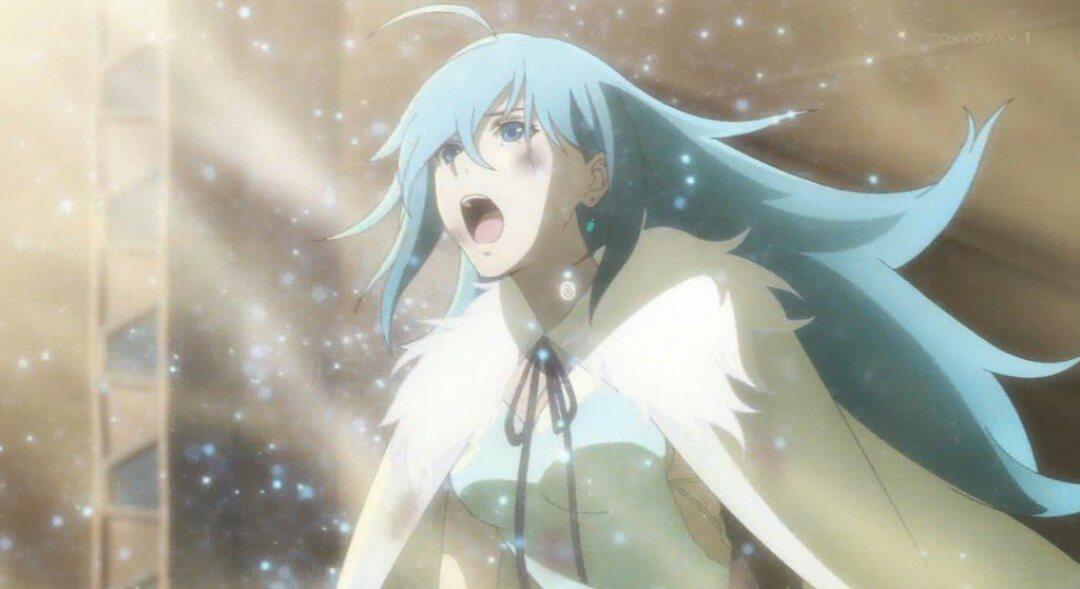SEASONAL PRATTLE
Vivy: Fluorite Eye’s Song has finally reached its conclusion, finishing in appropriate fashion with a swift reminder of some of the attributes this show does so well. The broader scope of episode thirteen is in line with the expectations seeded by twelve, where our content was positioned to essentially play out as a positive redo of the disaster we just saw, and therefore, most of its real impact and engagement would lean on Wit’s ability to execute rather than any hard narrative shakeups or grander twists that the script naturally provides. And Wit was certainly up to the challenge: Time and time again this series has pleasantly reveled in the beauty of its own production and how it’s coded to a narrative that’s rooted in good fundamentals – allowing the build to and eventual climaxes of each arc throughout the singularity project to ring in a way that’s not just resonant, but comprehendible with ease. Vivy: Fluorite Eye’s Song was good from start to finish, a nicely crafted product where Tappei is much more poised as a creator than some of his other works and where the wider collection of narrative choices are rigorously purposeful. A clear bright spot of the Spring.
Shadows House (11)
“The coffee solution/kidnapping landed like a natural companion to the debut material, giving the episode a sensible flow and a slightly more snug sense of structure”
Shadows House once again offered a pointed revelation this week, taking care in its delivery as the village riffs were thankfully constructed as a fuss-free extension of this series’ current conflict rather than one that largely exists just for shock value – avoiding an avenue in this kind of narrative space that’s so common and cheap nowadays. Apparently, episode eleven notably deviates from the source, which if there’s any truth to that claim, I find it even more impressive; Eleven came off very smooth in anime form, feeling neither artificial nor overly rushed in its scripting. The coffee solution/kidnapping landed like a natural companion to the debut material, giving the episode a sensible flow and a slightly more snug sense of structure, and its associated cliffhanger lays enough floorboards down to build an interesting finish. Things have shaped up nicely, and now all that is left is to gracefully close it out.
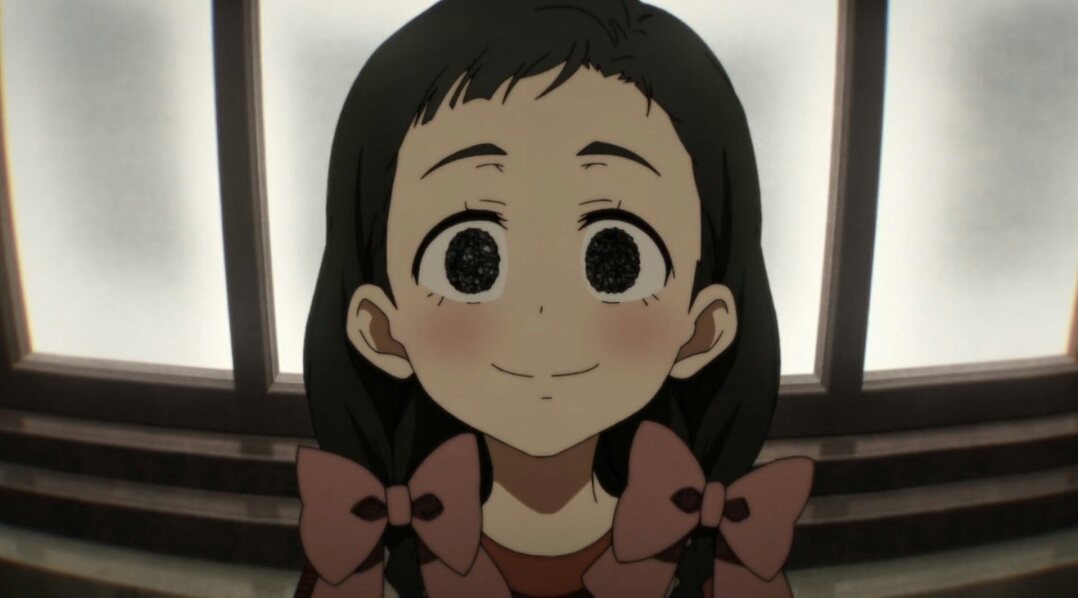
Fumetsu no Anata e (10)
“While not being as plentiful as seven days ago, there were a couple of appreciable exchanges that complemented the thematic binding that Rean and Gugu share”
Fumetsu no Anata e shuffles on with a surprisingly happy turnout, mostly solving last week’s predicaments just about as well as they could have gone for our group and tacking on a fairly peaceful fallout to top it off. Seeing drunk Gugu was fun, and while not being as plentiful as seven days ago, there were a couple of appreciable exchanges that complemented the thematic binding that Rean and Gugu share – primarily coming post-Rean’s family showing up. The only real rough spot here is that the time skip felt kinda random in a structural sense, it’s just not alluded to at all and frankly snapped into place in such a way that I wouldn’t be shocked if a decent amount of viewers were caught off guard by it. Be that as it may, it’s nothing close to ship sinking and the quality of this episode is still positive even with it in consideration.
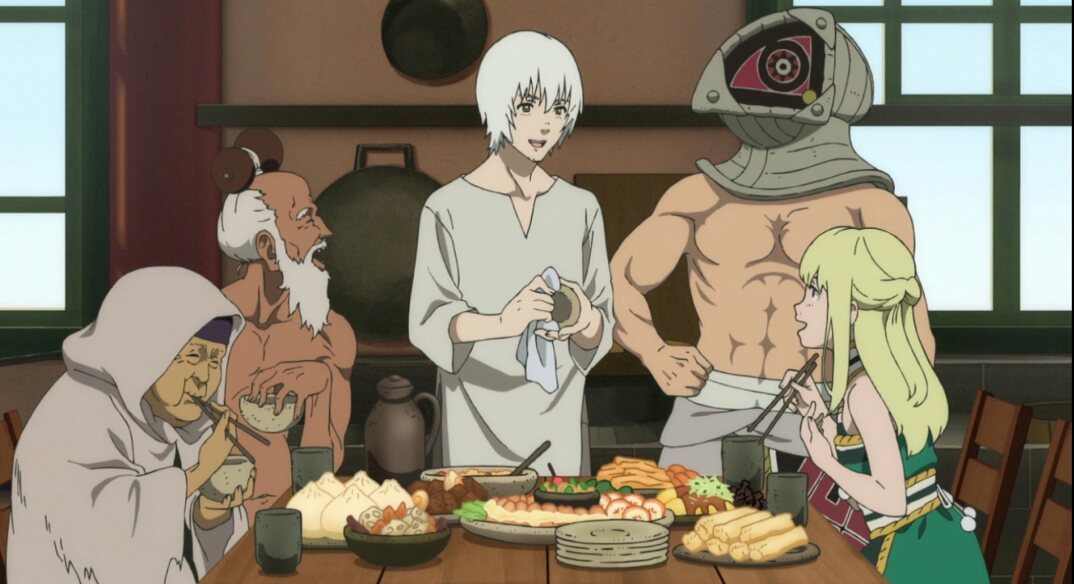
Super Cub (11)
“The inevitable reel back into its wholesome scripting is especially nourishing here”
We’re now inches away from Super Cub reaching the finish line, and in the meantime, it’s still dependably churning out positive showings. Episode eleven is good partly because the series steered out of its wheelhouse and still managed to hold its own, conveying the dramatics of Shii’s emergency with reasonable poise through some good directorial and production choices despite questionable decision making from Koguma, and partly because the inevitable reel back into its wholesome scripting is especially nourishing here. Super Cub is highly dependent on long-standing tone and feel; An episode’s individual success is almost always largely sensitive to its ability to properly convey the brand of warmth and comradery this show often goes for. The rescuing of Shii and the subsequential fallout from that was a good catalyst to drive home those variables – and this week rightfully takes advantage.
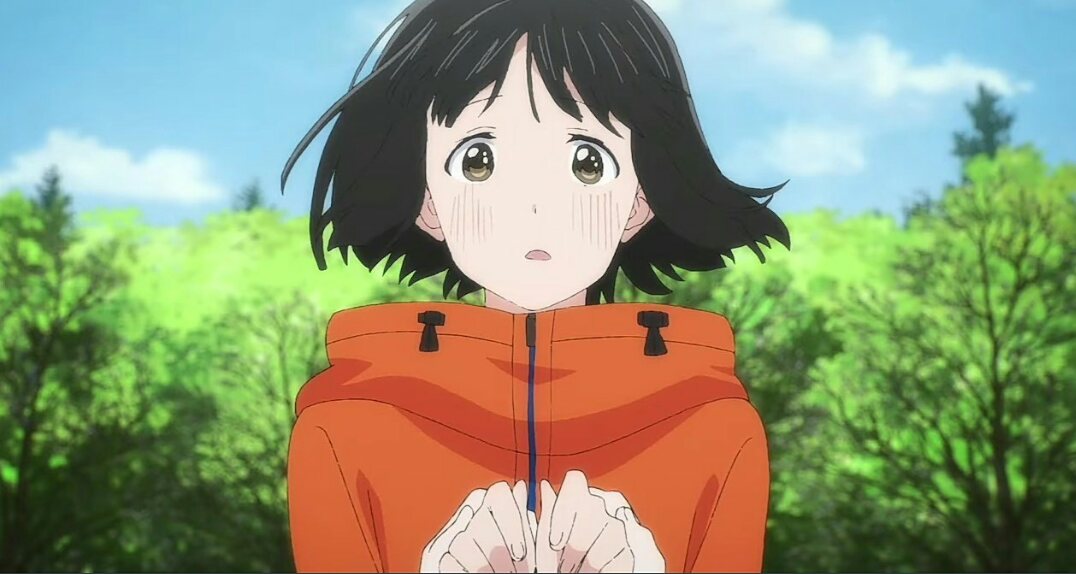
86 (11)
“86 resolves as a relatively decent but noticeably singed around the edges show, with its aesthetic craft and broader level of production competency definitely carrying a rather mild script that has weaker pits of text here and there”
86 wraps up, offering a final performance that’s very on-brand for the show – more or less managing to illustrate the mixed bag of a ride that has been this series’ run this Spring. A whole lot of episode eleven is structured like last week in terms of both tone, pace, and the type of comradery infused narrative stokes it utilizes, and that kind of made it inescapable that we’re watching a collection of fumes and overt sentimental attempts at plotting to round this season out as its actual narrative juice was spent up on episode nine – and viewers have just been living off of the remnants and withering fallout since. Be that as it may, this finale checks enough boxes between Shin’s solo legion encounter and Lena’s new resolve to be a fair end and act as a stable torch-passing for its second season in the bigger picture.
On a whole, 86 resolves as a relatively decent but noticeably singed around the edges show, with its aesthetic craft and broader level of production competency definitely carrying a rather mild script that has weaker pits of text here and there. The show has virtually no actual worldbuilding – relying on incidental scenes at best to build texture – and it plays with a blunt thematic approach and uneven level of character work to such an extent, that it often inherently dampens the ability to care about some of the tragedies that fall on the cast purely because they haven’t built up enough and the show’s dramatic intent is so straightforward. However, its brand of telling works in spots, and there’s enough positive meat on the bone for this to be a reasonable pick-up if one was seriously interested.

Mashiro no Oto (12)
“A tad too telegraphed and predictable with little in the ways of intriguing execution to alleviate that”
And so Mashiro no Oto has now come to an end. This last episode wasn’t exactly featuring the type of decorated display that’s worthy of Setsu’s performance – Mai and even Ushio’s pieces a few episodes back almost decisively received better visual garnish to accompany their sound – but this one did a fine job nonetheless in conveying how moving it was. The outcome to the competition was admittedly a tad too telegraphed and predictable with little in the ways of intriguing execution to alleviate that, and the proceeding tension placed on Setsu from those like Umeko and Ryuugen is definitely a step up in the level of drama we’ve been getting but is a little too late to truly soak in and enjoy as the season is now over. Mashiro no Oto eventually ended up being a decent work, it has some clear blemishes during its middle portions where it drags, and the earlier episodes are arguably more attractive in build/telling than its later episodes. The final stretch of material wasn’t anything groundbreaking, but it gets the job done in a way that is respectable and nicely lends a bridge for a second season.

Higehiro (11)
“Ever since returning to Hokkaido became the clear direction this story wants to go it’s basically gone downhill into some really mediocre places”
One more episode left to go and Higehiro in a lot of ways is mirroring its previous showing, seemingly doing all that it can to position the showdown with Sayu’s mom as the finale and stall with fillerish plotting until then. Admittedly, this week’s dramatic center is much better than last week’s “Sayu ran away” bit that was cooked up, as revisiting the school rooftop is at least substantive for Sayu’s character in addition to being an honest attempt to provide closure on that thread for her. However, that segment and the beats that surrounded it are all constructed as such a blatant delay of what viewers are really waiting for – coming off as various middling excuses to fill up eleven’s run-length and eventually run out the clock. Ever since returning to Hokkaido became the clear direction this story wants to go it’s basically gone downhill into some really mediocre places.
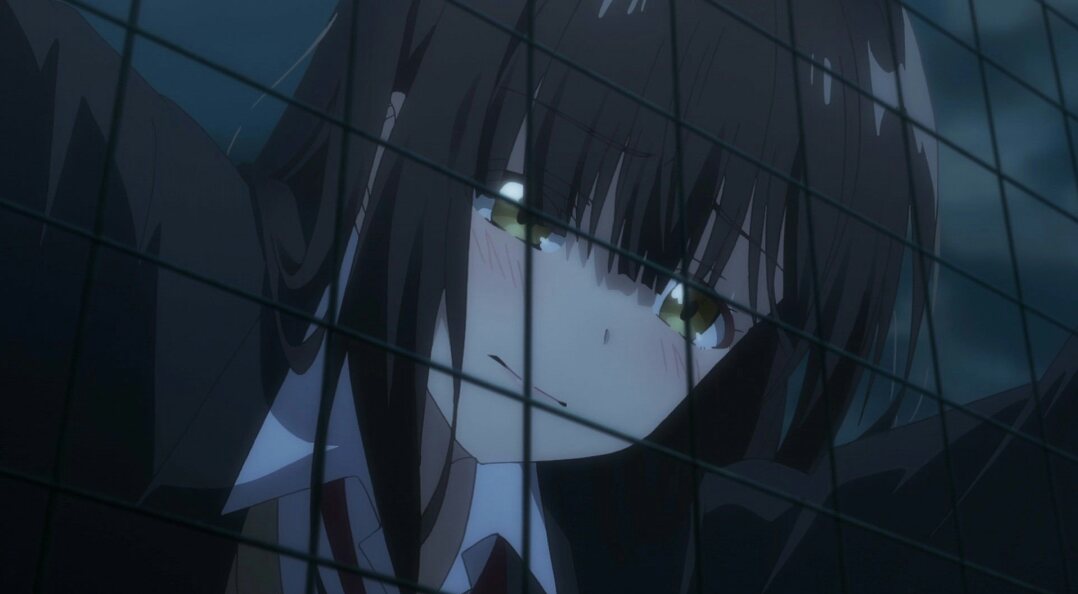
Osananajimi ga Zettai ni Makenai Love Comedy (10)
“This series is purely progressing based on bulimia thin plot beats and the thick stench that wafts from our garbage pail protagonist every time he acts ignorant to the heavy thirst from his growing harem”
Osamake is seemingly never satisfied with the consistent depreciation of its reputation – always insisting on further degrading itself, and now doing so by bringing a tenth trashcan to stack up with the rest. Although it was very noticeable in the past, it’s utterly blatant this time around: This series is purely progressing based on bulimia thin plot beats and the thick stench that wafts from our garbage pail protagonist every time he acts ignorant to the heavy thirst from his growing harem. And that repugnant combination is dressed up with unremarkable scenario writing, as this week’s early harem jockeying is equally as barren in interest and limp in motion as the late half pitch for the documentary project – a sad excuse in its own right to ensure shenanigans between the generic haremettes are in place for the foreseeable future. Osamake’s creator evidently studied everything that makes a good anime and decided to exclude all of it.
